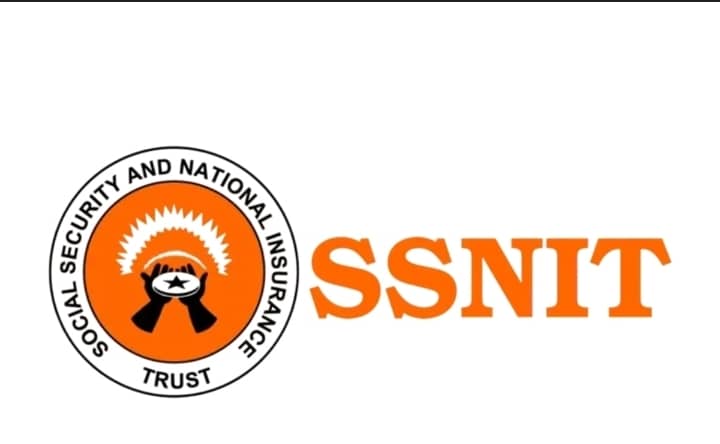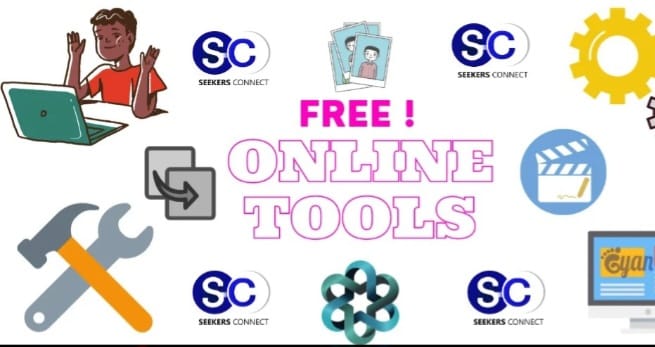
Top 10 Free Online Tools Every University Student Should Use (2025)
The 10 best free tools every university student should use for: research, references, writing, note-taking, design, studying (with quick-start steps + official links).
Why these tools?
Students face heavy reading, referencing, group projects, and deadlines. These ten tools cover the essentials: research discovery, reference management, writing polish, notes & planners, design, project boards, flashcards, cloud storage, free courses, and LaTeX/academic writing — all with usable free tiers. Each tool below includes official links and quick-start steps so your readers can sign up and get productive fast.
List of Free Online Tools
-
Google Scholar — research discovery.
-
Zotero — free reference manager.
-
Grammarly (free) — grammar & clarity checks.
-
Notion — notes, planners, and student Personal Pro.
-
Canva (Education/Free) — presentations & visuals.
-
Google Drive / Docs — cloud docs & 15 GB free storage.
-
Trello — lightweight project/group work Kanban.
-
Anki — spaced-repetition flashcards.
-
Khan Academy (and other free course platforms) — free learning & practice.
-
Overleaf — online LaTeX editor (free plan for academic writing).
Follow us on WhatsApp for more updates: https://whatsapp.com/channel/0029VaCyYGIFHWpx22L38a2K
Seekers Consult
Contact Us for Your Study Abroad Journey
We search for schools and check available scholarships for you
Contact: 0550414552 / 0362297079
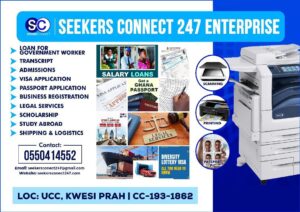
Loan for government workers
Transcript Application
English Proficiency
Recommendation letter
Project work/thesis for undergraduate, master’s, and PhD students.
Apply for Affidavit, Gazette instantly
Passport and Visa Applications
All other Internet Services
- Ireland Fellows Scholarship 2026–2027: List of Eligible Postgraduate Programmes
- Scholarship Opportunities for Ghanaian Students to Study in Serbia (2025/2026 Academic Year)
1) Google Scholar — find papers, theses, books fast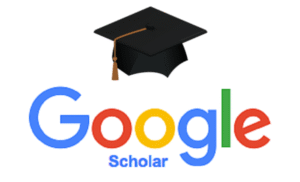
Why use it: Universal, free academic search engine for articles, theses, preprints, books, and patents; great starting point for literature reviews. Google Scholar
Best for: Literature searches, finding PDFs, seeing “cited by” counts, and creating alerts for new papers.
Quick start (2 minutes):
-
Go to Google Scholar and search for a keyword (e.g., “urban water governance Ghana 2020”). Google Scholar
-
Use the “Cited by” and “Related articles” links to expand results.
-
Click the PDF / [PDF] links on the right to get the full text when available.
NOTE: In the Scholar settings, add your university library links (Library links) to jump directly to content your library subscribes to. library.doc.gov
2) Zotero — free, open reference manager (excellent for students)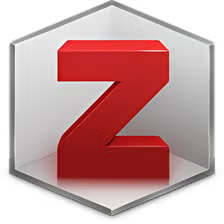
Why use it: Collects references, saves PDFs, auto-formats citations in Word/LibreOffice, and syncs across devices. Zotero is free and designed for academic research. Zotero+1
Best for: Managing bibliographies during essays, theses, group research, and exporting reference lists in APA/MLA/Chicago.
Quick start (5–10 minutes):
-
Download Zotero desktop and install the browser connector. (Desktop + Connector are free.) Zotero
-
While on a journal page or Google Scholar result, click the Zotero connector to save the citation + PDF to your library.
-
Install the Word or LibreOffice plugin (Zotero supplies integration) and use Insert Citation to add references; Insert Bibliography to auto-generate the References page.
Limitations/tips: Zotero cloud sync is free up to a small storage allotment; consider using linked attachments (store PDFs locally) or ZoteroBib for one-off bibliographies. Zotero
3) Grammarly (Free) — basic grammar, spelling & tone checks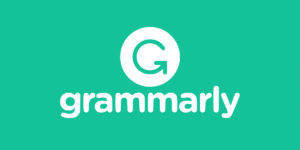
Why use it: Fast grammar and spelling fixes across the web (browser extension) and a helpful web editor for drafts. The free tier covers basic grammar and spelling; premium expands style, clarity, and genre-specific suggestions. Grammarly+1
Best for: Quick proofreading of essays, emails to lecturers, and assignment drafts.
Quick start (2 minutes):
-
Install the Grammarly browser extension and sign up for a free account. Grammarly
-
Use the Grammarly web editor to paste larger drafts and review suggestions.
-
For citations/academic style, be cautious — Grammarly is a writing coach, not a style manual substitute.
Limitations/tips: Free version is good for a baseline pass; always re-check technical or discipline-specific terminology manually. For heavy academic citation work, pair Grammarly with Zotero/Overleaf.
4) Notion — notes, planners, and student Personal Pro plan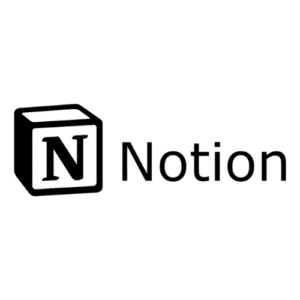
Why use it: All-in-one workspace for notes, to-do lists, trackers, and lightweight databases. Notion offers a free Education Plus/Personal Pro plan for eligible students (verify with school email). Notion+1
Best for: Course notes, semester planners, group project wikis, assignment trackers.
Quick start (5–10 minutes):
-
Sign up with your student email and verify via Notion’s education page to get the student plan (if eligible). Notion
-
Import lecture notes (Markdown) or create a semester dashboard with deadlines, links to readings, and reading checklists.
-
Use templates (Class Notes, To-Do list, Syllabus tracker) to save time.
Limitations/tips: Notion is powerful but flexible — start with a simple page template and iterate. Use Notion’s mobile app to keep notes synced.
5) Canva — fast visuals, posters, and slide design (Canva for Education)
Education)
Why use it: Drag-and-drop design for posters, presentations, infographics, and CVs. Canva offers Canva for Education tools; students at eligible institutions may get Education/Campus perks or use the free plan. Canva+1
Best for: Creating eye-catching slides, poster sessions, CVs, and social images for student groups.
Quick start (3 minutes):
-
Go to Canva’s Education page and check student eligibility; sign up or use the free account. Canva
-
Use a presentation or poster template and replace text/images with your content.
-
Download as PDF or PNG for printing or submission.
Limitations/tips: For higher-ed campus-wide free access, see “Canva for Campus” (institution-level). If your university has it, you may get Pro features for free. Canva
6) Google Drive & Google Docs — free cloud docs + 15 GB storage
Why use it: Collaborative docs and cloud storage (15 GB free per Google account shared across Drive/Gmail/Photos). Docs gives real-time collaboration, comments, and offline edits if enabled. Google Help+1
Best for: Group reports, co-authored projects, and storing drafts with automatic version history.
Quick start (1–2 minutes):
-
Create a Google account (if you don’t have one). You get 15 GB free storage shared across Google services. Google Help
-
Use Google Docs for live group editing and Google Drive folders to organize course materials.
-
Use Share → Anyone with the link can carefully pick view/comment/edit.
Limitations/tips: 15 GB fills up fast if you store lots of PDFs/photos. Use the university Google Workspace (if provided) for larger quotas or to clean old attachments.
7) Trello — simple Kanban boards for group projects (free plan is generous)
generous)
Why use it: Visual Kanban boards for tasks; free plan supports unlimited cards and many power-ups — ideal for managing group assignments and research tasks. Trello+1
Best for: Group project task tracking, assignment workflows, research to-do lists.
Quick start (3 minutes):
-
Create a Trello board for your project with lists like Backlog / In Progress / Review / Done. Trello
-
Create cards per task, assign members, add due dates, and checklists.
-
Use a Power-Up (calendar or Google Drive) to integrate files and deadlines.
Limitations/tips: Trello is lightweight; larger teams who need advanced reporting might use Asana or Monday (paid tiers).
Follow us on WhatsApp for more updates: https://whatsapp.com/channel/0029VaCyYGIFHWpx22L38a2K
Seekers Consult
Contact Us for Your Study Abroad Journey
We search for schools and check available scholarships for you
Contact: 0550414552 / 0362297079

Loan for government workers
Transcript Application
English Proficiency
Recommendation letter
Project work/thesis for undergraduate, master’s, and PhD students.
Apply for Affidavit, Gazette instantly
Passport and Visa Applications
All other Internet Services
- Admission Requirements for BSc. Biochemistry Programme- UDS|UG| UCC| KNUST
- Admission Requirements for Bachelor of Commerce Procurement and Supply Chain Management (PSCM) Programme- UDS| UEW| UG| UCC| UPSA
8) Anki — free spaced-repetition flashcards (powerful long-term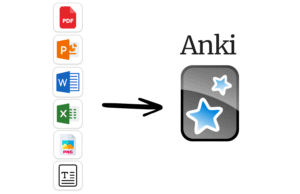 retention)
retention)
Why use it: SRS (Spaced Repetition System) dramatically improves memorization for exams. Anki is free (desktop & AnkiWeb) and uses SM-2 / newer FSRS algorithms for scheduling reviews. AnkiWeb+1
Best for: Medical students, language learners, or any course requiring heavy memorization.
Quick start (10 minutes):
-
Download Anki (desktop) and create an AnkiWeb account to sync. AnkiWeb
-
Create a deck, add clear Q → A cards (single fact per card).
-
Review daily — Anki schedules the next review based on difficulty.
Limitations/tips: Building good cards takes time; search shared decks for subject basics, but customize for your syllabus. Learn the basic card-design rules (one fact per card).
9) Khan Academy (plus Coursera & edX) — free course content & practice
practice
Why use it: Khan Academy is entirely free and excellent for foundational topics (math, science, computing). Coursera/edX offer many free audit options (some content free, certificates usually paid). Use these for course gaps or skill upgrades. Khan Academy+1
Best for: Learning or reinforcing core concepts, exam practice, or prepping for higher-level modules.
Quick start (2 minutes):
-
Create a Khan Academy account and pick your subject or course. Khan Academy
-
For university-level electives, search Coursera/edX for “audit” or “preview” options (verify current audit availability per course). Coursera+1
Limitations/tips: Some professional certificates and assignments on Coursera may require payment for full course access/graded work.
10) Overleaf — online LaTeX editor for theses, papers & reports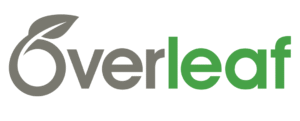 (free plan)
(free plan)
Why use it: Overleaf runs LaTeX in the browser with collaboration and versioning — the free plan supports unlimited projects and one collaborator per project, which is ideal for theses and technical reports. Overleaf+1
Best for: STEM students writing papers, theses, or documents that require complex equations, citations (BibTeX), and professional typesetting.
Quick start (5 minutes):
-
Sign up on Overleaf and start a new project from a template (article, thesis, poster). Overleaf
-
Paste your LaTeX source or use the editor to type; Overleaf compiles to PDF in real time.
-
Connect to Zotero/Mendeley or upload a
.bibfile for citations (Overleaf supports integrations). Overleaf Docs
Limitations/tips: The free plan’s compile time and collaborator count are limited; upgrade for heavier team work or larger compile time needs.
How to pick the right tool for your workflow (short checklist)
-
Research-heavy work? Start with Google Scholar + Zotero + Overleaf. Google Scholar+2Zotero+2
-
Group projects? Use Google Docs + Trello + Canva. Google Workspace+2Trello+2
-
Study & memorization? Use Anki + Khan Academy. AnkiWeb+1
-
Writing polish? Use Grammarly (free) + Zotero citations. Grammarly+1
Frequently Asked Questions?
-
Q: Are these tools really free for students?
A: Yes — each tool listed has a usable free tier; some (Notion/Canva/Overleaf) offer education-specific plans or campus programs with expanded features — check eligibility links in the tool sections. Notion+2Canva+2 -
Q: Which reference manager is best?
A: Zotero is a top free choice for most students because it’s free, open-source, and integrates with Word/LibreOffice and browser connectors. Zotero -
Q: Can I use Google Drive and Overleaf together?
A: Yes — you can export PDFs from Overleaf and store them in Google Drive; Overleaf also offers integrations with Dropbox and GitHub on paid plans. Overleaf Docs
Follow us on WhatsApp for more updates: https://whatsapp.com/channel/0029VaCyYGIFHWpx22L38a2K
Seekers Consult
Contact Us for Your Study Abroad Journey
We search for schools and check available scholarships for you
Contact: 0550414552 / 0362297079

Loan for government workers
Transcript Application
English Proficiency
Recommendation letter
Project work/thesis for undergraduate, master’s, and PhD students.
Apply for Affidavit, Gazette instantly
Passport and Visa Applications
All other Internet Services
- How to get reference letters for scholarships: A step-by-step guide
- Full Guide to Apply for Chevening Scholarships this Year (Fully Funded UK Master’s)
- Admission Requirements for Bachelor of Science in Mental Health NursingProgramme- UCC


